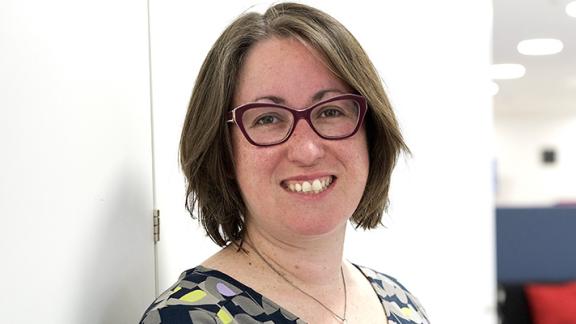What experience do LGBTQ+ people have in the NHS these days?

On International Day Against Homophobia, Biphobia, Intersexism And Transphobia, Dr Layla McCay considers the inequalities of experiences of LGBTQ+ people as reflected in the NHS Staff Survey, and the improvements that still needs to be made if the NHS is to achieve its ambitions as an employer and its commitments in the NHS People Promise.
Today is International Day Against Homophobia, Biphobia, Intersexism And Transphobia (which bears my favourite ‘day’ acronym, IDAHoBIT) and is an opportune time to reflect on how discrimination contributes to inequalities of experience and opportunity of LGBTQ+ staff in the NHS – and what that means for the NHS People Promise.
Much room for improvement
The most recent NHS Staff Survey results make for distressing reading. They tell us that LGBTQ+ staff in the NHS are still much more likely to face physical violence, bullying and harassment in their workplace than other staff. This disparity is rooted in the prejudice and discrimination that many people face in their everyday lives due to their sexuality or gender. Our Health and Care LGBTQ+ Leaders Network members often reflect that despite some gains, there is still much room for improvement if the NHS is to fully achieve its ambitions as an employer. The data makes this clear.
...over 20 per cent of gay, lesbian, bisexual and transgender staff have faced physical violence from patients or relatives compared to 13 per cent of heterosexual staff
The latest NHS Staff Survey reveals that over 20 per cent of gay, lesbian, bisexual and transgender staff have faced physical violence from patients or relatives compared to 13 per cent of heterosexual staff. Trans staff are most affected, at 22.2 percent. While even one person experiencing violence is clearly unacceptable, it is disturbing to see the evidence that even today, LGBTQ+ staff in the NHS are at such significantly increased risk of experiencing physical violence in the course of their daily work. When other forms of bullying, harassment and abuse from patients and relatives are included, the numbers jump to over 34 per cent compared to 26.8 per cent of heterosexual staff, with bisexual staff most affected here at 37.5 per cent.
Perhaps most worryingly, LGBTQ+ staff face considerable antagonism from within their trusts, with over 23 per cent experiencing bullying, harassment and abuse from managers or colleagues, compared to 17 per cent of their heterosexual counterparts. Once again, transgender staff fared worse, with 27.6 per cent reporting having experienced bullying, harassment and abuse.
…we can be certain that presenting as anything other than heterosexual or cisgender dramatically increases the chances of these staff being subjected to discrimination and abuse
Interestingly, when we look at the percentages for staff who declared themselves as ‘other,’ they faced equally high levels of abuse, harassment and violence as self-declared LGBTQ+ staff members. While we cannot quantify where these staff members fall within the LGBTQ+ acronym, we can be certain that presenting as anything other than heterosexual or cisgender dramatically increases the chances of these staff being subjected to discrimination and abuse. NHS leaders will want to explore and understand the situation within their own organisations, which can be extracted from the data.
We have developed recommendations about how to improve health and care workplaces to support LGBTQ+ people and, following a pilot project, will soon be sharing learnings around how a range of NHS organisations have approached implementation. There are various programmes of work underway to address this challenge and there has been some progress, such as in reducing violence, but there is still a long way to go.
Creating change through staff networks
There is hope for change though. The increasing establishment of LGBTQ+ staff networks, often with executive-level sponsorship, is empowering staff to create a culture change from the ground up, facilitating open and honest conversations with colleagues and creating safe spaces for staff to be their authentic selves. Many NHS organisations are also signed up to the Rainbow Badge Scheme, a useful tool in signposting staff to support where it’s needed. Others are ensuring their freedom to speak up guardians and equality champions are highly visible, and neutral, contacts for staff to share any concerns or conflicts with.
While staff survey results that lay bare inequalities experienced by LGBTQ+ people make for uneasy reading, it is an important barometer of how well our healthcare system is caring for those who care for us. The purpose of IDAHoBIT is to remind us that prejudice isn’t simply a concept; it is real world discrimination that can manifest as violent abuse, bullying and harassment that have deep impacts on the lives of NHS staff. Using the staff survey well, including improving categories, and also investing in further research to better understand disparities, is part of the action needed. Stamping out discriminatory behaviours wherever they arise is integral to the NHS People Promise.
Layla McCay is director of policy NHS Confederation and executive lead of the Health and Care LGBTQ+ Leaders Network. You can follow Layla on Twitter @LaylaMcCay


